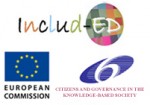The International Sociological Association (ISA), founded in 1949, is a non-profit association for scientific purposes and represents sociologists all over the world from 167 countries, with all kinds of ideological views. The purpose of this association is to advance sociological knowledge all together and to secure the free development of scientific intellectual production. Therefore the association promotes activities to encourage the international dissemination and exchange of sociological knowledge. The association also provides support for activities that facilitate international research and training, organises meetings and also the world congresses. (For further information on the International Sociological Association please see the following website: http://www.isa-sociology.org/).
The XVII ISA World Congress of Sociology, held in Gothenburg –Sweden – between the 11th and 17th of July this year, was the most important international event to bring sociologists together and present the latest research projects and their outcomes in a large variety of different branches of sociology. The INCLUD-ED project was presented at this congress within the Sociology of Education research committee in the session dedicated to Global Agendas and National and Regional Configurations: New ways of Regulation in Education Policies. The project paper was entitled Scientific Research for Educational Success for All: Differences among Mixture, Streaming and Inclusion and was presented by Adriana Aubert, Mimar Ramis and Gisela Redondo, members of the Centre of Research in Theories and Practices that Overcome Social Inequalities (CREA) in the University of Barcelona. The paper focused on the results of the first-years research which identified three different forms of school organisation: mixture, streaming and inclusion, and their advantages and disadvantages. The paper highlighted the successful results of the form of organisation denominated “inclusion”. At the end of the presentation, the audience was very interested in and impressed with the impact of the results of the Includ-ed project, and they encouraged the researchers to continue working in this direction.
